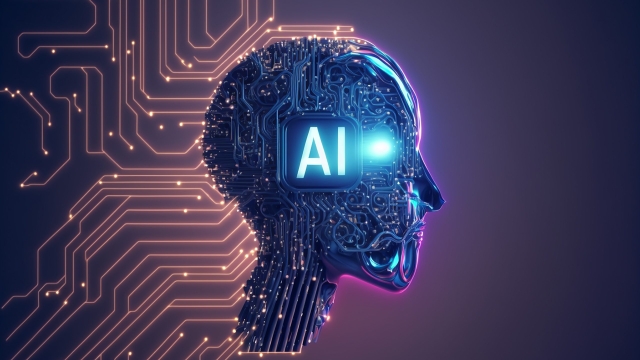
In today’s rapidly evolving technological landscape, artificial intelligence holds a prominent place as one of the most groundbreaking and transformative innovations of our time. At the intersection of computer science, mathematics, and cognitive psychology, artificial intelligence seeks to mimic human intelligence through the development of algorithms and systems capable of learning, reasoning, and problem-solving. With the advent of increasingly sophisticated computing power and data analytics, artificial intelligence has witnessed unprecedented growth and utilization across a wide array of industries and applications.
From virtual assistants and self-driving cars to medical diagnostics and financial analysis, artificial intelligence has revolutionized the way we interact with technology and navigate the complexities of our modern world. The ability of intelligent machines to perform tasks that typically require human intelligence, such as speech recognition, visual perception, and decision-making, has not only improved efficiency and productivity but also raised profound questions about the ethical and societal implications of this rapidly advancing field. As we delve deeper into the realm of artificial intelligence, exploring its capabilities, limitations, and potential impact on our lives becomes increasingly crucial to understanding the future landscape of technology and human-machine interaction.
History of AI
In the early 1950s, the idea of artificial intelligence began to take shape. Researchers and scientists aimed to create machines that could mimic human intelligence through logical reasoning and problem-solving. The initial focus was on developing programs that could perform tasks like playing chess and solving mathematical equations.
By the 1960s, AI research had expanded, with projects exploring natural language processing and computer vision. Early AI systems, such as the General Problem Solver, laid the foundation for more advanced technologies to come. Researchers were inspired by the human brain’s ability to process information and sought to replicate this cognitive function in machines.
The 1980s marked a period of growth and innovation in the field of artificial intelligence. Expert systems emerged, enabling computers to make decisions based on rules and knowledge. This era also saw the development of neural networks and machine learning algorithms, paving the way for modern AI applications.
Current Applications
Artificial intelligence is rapidly transforming various industries, with applications ranging from healthcare to finance. In the healthcare sector, AI is being utilized to analyze medical images, predict patient outcomes, and even assist in drug discovery. These applications have the potential to revolutionize how diseases are diagnosed and treated, ultimately improving patient care and outcomes.
In the field of finance, artificial intelligence is being leveraged to detect fraudulent activities, predict market trends, and automate trading processes. AI-powered chatbots are also being used by financial institutions to provide customer support and streamline operations. These applications not only enhance efficiency but also help companies make data-driven decisions in real-time.
Moreover, in the realm of transportation, artificial intelligence is playing a crucial role in the development of self-driving cars and optimizing traffic flow. By using AI algorithms to analyze traffic patterns and make real-time adjustments, cities can reduce congestion and improve overall transportation efficiency. These advancements in AI technology are paving the way for a future where autonomous vehicles are a common sight on the roads.
https://www.blab.com
Future Possibilities
In the near future, artificial intelligence is poised to revolutionize industries such as healthcare, finance, and transportation. With advanced AI algorithms, medical professionals can analyze vast amounts of patient data to improve diagnoses and treatment plans. In the financial sector, AI-driven tools can enhance risk management and fraud detection capabilities, leading to more secure transactions and investments. Additionally, self-driving cars equipped with AI technology have the potential to transform the way we commute, making roads safer and transportation more efficient.
As AI continues to evolve, we may see its integration into everyday devices, creating a more interconnected and intelligent environment. Smart homes equipped with AI assistants can anticipate our needs and preferences, enhancing convenience and efficiency in managing household tasks. Furthermore, AI-powered devices like wearable health trackers can provide real-time insights into our well-being, enabling proactive health monitoring and personalized recommendations for a healthier lifestyle.
Looking ahead, the development of artificial general intelligence (AGI) holds the promise of creating machines with human-like cognitive abilities. AGI could lead to breakthroughs in scientific research, problem-solving, and creativity, elevating the potential for innovation across various fields. However, ethical considerations around AI development and deployment will be crucial in ensuring that these intelligent machines are designed and utilized in a responsible and beneficial manner for society.






Recent Comments